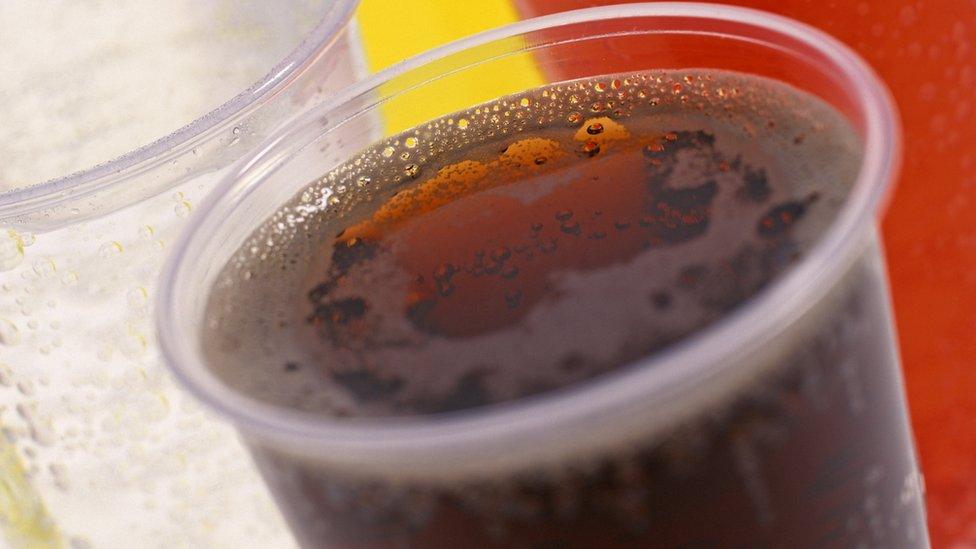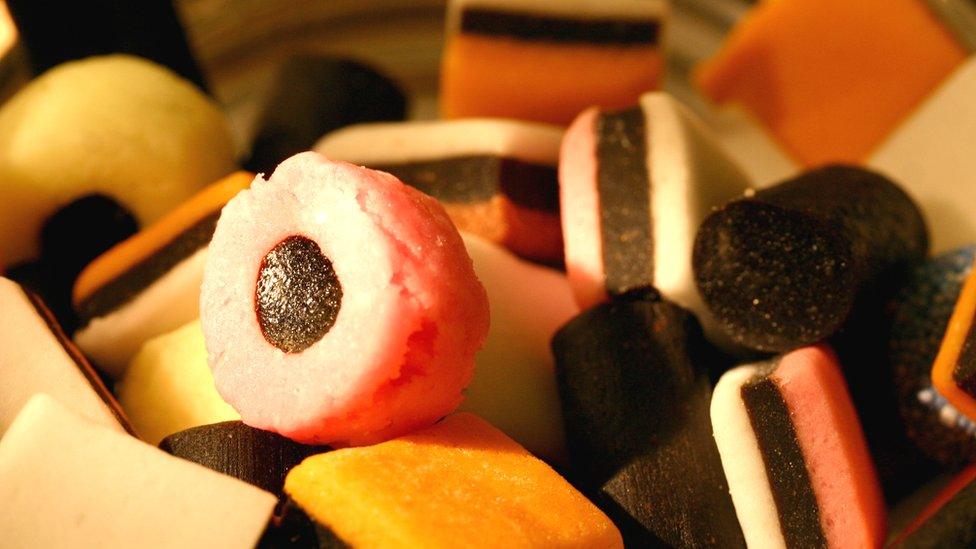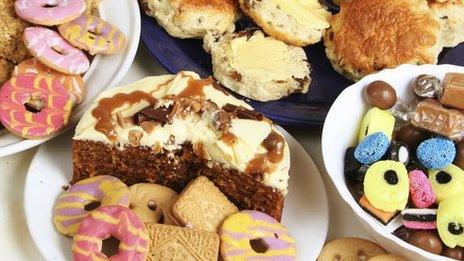Be bold on sugar tax, Jamie Oliver says
- Published
Jamie Oliver: "Governments over the past 30 years have done an incredible disservice to children"
TV chef Jamie Oliver has urged ministers to be "big and bold" by introducing a sugar tax on fizzy drinks.
Mr Oliver has been campaigning for the levy to be included in the forthcoming child obesity strategy.
He told MPs on the House of Commons' Health Committee a tax would be the "single most important" change that could be made.
He said it would be "deeply symbolic" as well as raising money.
Ministers have indicated a tax will not be introduced, although Mr Oliver said he did not believe, from his discussions, that it had been "written off".
It has been estimated a 20% sugar tax could raise up to a £1bn a year.
Mr Oliver said he would like to see that shared between the NHS and primary schools.
But he said the most important reason for introducing a tax was the message it sent out.
Mr Oliver, who has introduced a levy on soft drinks with added sugar in his own restaurants, said: "We should be big and bold. Who is running the country? The businesses who are profiting from ill health or is it us?"

The sugar problem

There has been growing concern about the damaging impact of sugar on health - from the state of people's teeth to type-2 diabetes and obesity
Sugar has been dubbed "empty calories" because it has no nutritional benefit
Government advisers recommend no more than 5% of daily calories should come from sugar
That is about 1oz (25g; six or seven teaspoons) for an adult of normal weight every day. For children, it is slightly less
The limits apply to all sugars added to food, as well as sugar naturally present in syrups and honey
To put this in context, a typical can of fizzy drink contains about nine teaspoons of sugar

Mr Oliver said it was right to target fizzy drinks rather than other sources, such as chocolate bars, because people did not realise just how much sugar was in such drinks.
The official advice is that no more than 5% of daily calories should come from sugar - the equivalent of about six or seven teaspoons of sugar for a normal weight adult. A typical can of fizzy drink contains about nine teaspoons.
'Naughty step'
He went on to liken the introduction of a tax to disciplining children. "When my kids are naughty, they go on the naughty step. That is what this tax is."
Mr Oliver has started a petition calling for a tax to be introduced, which has nearly 150,000 signatories.
But the government has responded by saying that it has no plans to introduce a tax.
In a statement, the Department of Health said: "The government has committed to a tax lock to avoid raising the cost of living and to promote UK productivity and economic growth.
"The causes of obesity are complex, caused by a number of dietary, lifestyle, environmental and genetic factors, and tackling it will require a comprehensive and broad approach.
"As such, the government is considering a range of options for tackling childhood obesity."
The strategy is likely to be published in the new year.
Earlier at the evidence session, Duncan Selbie, the head of Public Health England, defended his decision not to release a review of how sugar consumption could be reduced.
PHE has carried out the review - looking at measures such as a sugar tax and discounted deals - for the government.
But despite it being ready it has not been published - something the committee has already criticised. Mr Selbie said there was "no conspiracy" and the review would be published.
- Published13 October 2015

- Published29 September 2015

- Published30 July 2015
- Published5 March 2014
